What to Read When You’re Out of Ideas
These books dispense practical advice on managing one’s ambitions—or describe the dread of writer’s block with precision and humor.
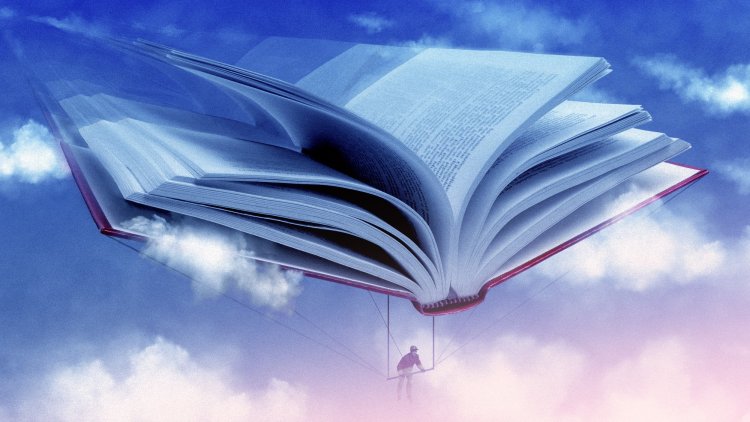
Having a creative block is an invisible psychological torment. You sit and stare at a computer screen or a blank page, willing ideas to come into your head. But none appear, or they’re all terrible, and eventually you begin to wonder whether you’ll ever have an original thought again. The worst part is the horrible feeling of helplessness that comes with a block. The condition is like quicksand: The harder you try to dig your way out of it, the more your own lack of inspiration overwhelms you.
The books below depict writers, artists, and other creators struggling with stalled projects, or discuss the mysterious source of ideas, and together they form a clearer picture of the affliction. Blocks tend to crop up when we put undue pressure on ourselves to perform or to attempt lofty tasks. These books dispense practical advice on managing one’s ambitions, or describe feeling stuck with such precision and humor that they remind us that we’re not alone and the state won’t last forever.
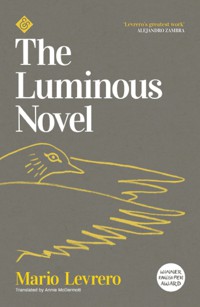
The Luminous Novel, by Mario Levrero
“This whole book is the testimony of a monumental failure,” the late Uruguayan author Levrero writes in a prefatory section of The Luminous Novel. After being awarded a Guggenheim fellowship in 2000 to complete an unfinished project also referred to throughout as “the luminous novel,” Levrero keeps a yearlong diary in which he seemingly does everything except work on the book: He plays endless hands of a digital solitaire game and obsessively writes programs in Visual Basic on his computer, analyzes his dreams, purchases furniture, attempts to set up air-conditioning in his apartment, longs to reignite his sexual relationship with a woman named Chl, and invents a whole family saga out of the comings and goings of the pigeons on his neighbor’s roof. Somehow it’s riveting, thanks to Levrero’s dry humor and honesty. As he tries to wean himself off his various coping mechanisms and write—and doesn’t manage to, over and over again—we’re reminded that so much of creative work is an attempt to capture something impossible to capture, and that one can find transcendence and meaning even in failure.
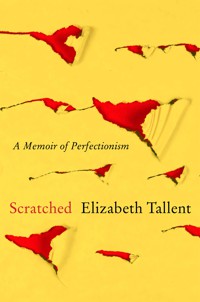
Scratched, by Elizabeth Tallent
In the 1980s and early ’90s, Tallent was a glittering literary success, having published five books by her late 30s. Then came two decades of silence. This memoir answers the question of what happened by charting a life warped by perfectionism, from Tallent’s childhood attempts to draw approval and affection from her aloof parents—particularly a mother who refused to hold her as a newborn—into multiple ill-fated marriages and the raising of a son. The devious agony of perfectionism is that it “can present not as delusion, but as an advantageous form of sanity,” Tallent writes, even as it destroys the vital quality that makes a work of art succeed. The prose itself mirrors the compulsion: We’re constantly doubling back to untangle the book’s dense, breathless, image-rich sentences, so that we viscerally feel the same obsessive repetition Tallent describes. Her progress is slow and halting, but eventually she manages to choose imperfect reality over the unreal beauty of an imagined ideal—because, as she points out, “stories thrive on exactly those risks perfectionism forecloses.”
[Read: ‘I don’t believe in writers’ block’]
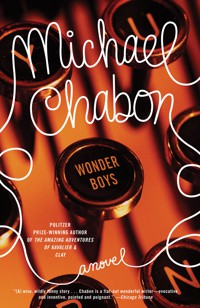
Wonder Boys, by Michael Chabon
This romp of a novel captures—for better or worse—the precise feeling of suffocation that comes when you’re mired in an intractable project. The 41-year-old writing professor Grady Tripp has been toiling over his “immense careering zeppelin” of a novel manuscript for seven years; it currently spans 2,611 pages with no end in sight. When his editor and best friend, Terry Crabtree, comes to town for a literary festival at Grady’s university, things quickly go sideways: One of Grady’s students steals a priceless jacket from the husband of Grady’s mistress, who’s just discovered that she’s pregnant with Grady’s child, which Grady must tell his estranged third wife about at a Passover seder with her entire family. But even as Grady races from crisis to crisis, he returns incessantly to the knotted problem of his manuscript, a burden just as real as the dead dog, dead boa constrictor, and misplaced tuba that end up in his car’s trunk over the course of the weekend. Wonder Boys suggests the lengths we’ll go to create our own obstacles, and offers up twisted solace for anyone struggling with creative isolation.
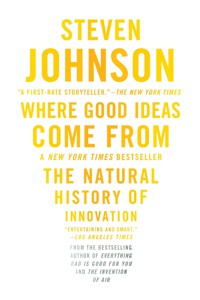
Where Good Ideas Come From, by Steven Johnson
Most books about creativity focus on the individual: Here’s how you can awaken your latent artistic or entrepreneurial talent. Where Good Ideas Come From flips that approach on its head. It scrutinizes certain environments—cities, for example, or coral reefs—and distills general principles about what makes these places hotbeds of innovation. Along the way, the book debunks many of our assumptions about how inspiration works—the lone inventor, the sudden flash of insight. Instead, Johnson writes, “most great ideas come into the world half-baked, more hunch than revelation.” They develop slowly, erratically, often by bumping into an entirely unrelated idea or cobbling together parts designed for utterly different purposes. The book itself is a delightful intellectual adventure: To illuminate the importance of serendipity, error, and “liquid networks,” Johnson draws on examples as wide-ranging as Darwin formulating his theory of natural selection, the rise of double-entry bookkeeping, and the invention of the World Wide Web. Variety and openness are crucial for good ideas to develop, Johnson makes clear, and his book encourages us to cultivate these qualities in our own lives.
[Read: The Rick Rubin guide to creativity]
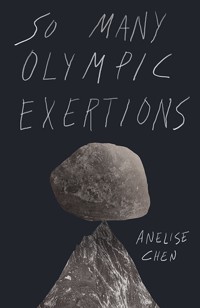
So Many Olympic Exertions, by Anelise Chen
Athena is in her eighth year of an American Studies Ph.D. program, struggling to complete her dissertation. After she hears that her ex-boyfriend has died by suicide, just getting through the day becomes an act of endurance. Which is fitting, because Athena’s dissertation is about sports, and suddenly she can’t stop watching videos of marathon runners crossing finish lines in great agony. Written in propulsive segments that move seamlessly between fiction and nonfiction, the novel reads in part like a fascinating hybrid essay on the psychological impact of competition and the ubiquity of sports metaphors, which Chen points up to illustrate how much the mentality of never quitting, of winning at all costs, has seeped into our society’s obsession with achievement. By the end, forcing ourselves to finish things just to finish them becomes absurd—an invitation to reevaluate for those toiling on seemingly endless projects. “If Sisyphus were an athlete, he would have been the best,” Chen writes wryly, “the universe’s one standout stone-roller.”
What It Is, by Lynda Barry
The astonishing What It Is defies categorization: It’s part graphic memoir, part meditation on creativity, part self-help “activity book” for artists. Barry, a cartoonist, intersperses scenes from a childhood spent furtively drawing despite her unsupportive mother with full-page collages centered on generative questions—including “WHAT IS THE PAST?” and “WHERE DO CHARACTERS COME FROM?” These are richly adorned with snippets of cursive text, old stamps, and textured drawings of deep-sea creatures, birds, and ghosts. The effect is intentionally childish, faded, and a little creepy, because dredging up images from one’s past is an emotional effort central to the book. The core of the arts is play, Barry argues: something children undertake with great seriousness until they learn to be aware of what others think, which can choke off creativity. But the key, when you’re blocked, isn’t simply to think harder. It’s to relinquish control, “to be able to stand not knowing long enough to let something alive take shape,” Barry writes. Her exercises at the end of the book strengthen this ability and help readers reclaim the tactile, thought-provoking pleasure of putting marks on a page.
[Read: When you need a little nudge to write]
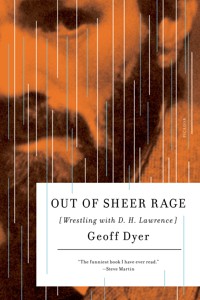
Out of Sheer Rage, by Geoff Dyer
Having accumulated a large number of notes in preparation for a “sober, academic study of D.H. Lawrence,” Dyer ruefully admits on the very first page of this book that it was all a huge waste of time. What follows is a chatty, fastidious record of Dyer’s distractions from his putative goal, as he travels from a Greek island to Rome to Taormina to Oxford to Oaxaca to Taos. But despite all of his very funny grumblings about how miserably he’s failing to write his book about Lawrence, we get a strong sense of the writer, whose books, quotes, moods, biographical information, and general worldview saturate Out of Sheer Rage. This freewheeling, sideways solution to the problem is part of the book’s brilliance. “Spare me the drudgery of systematic examinations,” Dyer writes in one typically opinionated passage, “and give me the lightning flashes of those wild books in which there is no attempt to cover the ground thoroughly or reasonably.” It’s a useful, liberating reminder that the obligations and expectations imposed on creative work—either by ourselves or others—are never as rigid as they might seem.
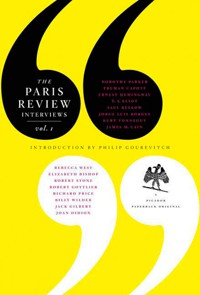
The Paris Review Interviews, Vol. 1
The Paris Review has been asking great writers how and why they write since its inception in 1953, and its archive of interviews has become a literary institution in its own right. The famous interviewees in this volume, which collects 16 exemplars of the form, come across as reassuringly human. You’ll find Elizabeth Bishop being rueful about how many poems she gives up on, Kurt Vonnegut admitting to feeling miserable after a slew of bad reviews, and Rebecca West reflecting that her books “don’t seem to me as good as they might be.” Then there are practical little tricks to steal: To avoid being blocked, for instance, Ernest Hemingway would stop writing when he knew what would come next in a work in progress, so he could continue more easily the next day. Reading these authors’, editors’, and screenwriters’ discussions of their work, their wildly different voices all jostling together, somehow frees you up for your own creative endeavors. There are so many ways to produce art, these interviews make clear, that you might as well just be yourself—to simply get down what you think, and hope for the best.
What's Your Reaction?




















